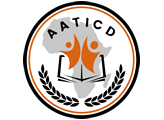Why Attend
Supply chain managers, procurement managers, and sourcing professionals manage a company’s activities and spend with its suppliers, which can be a very significant element of a company’s total turnover. In the modern-day, a company’s competitive advantage in most industries will be determined by maximizing its relationships and the diligent management of its forward and backward-facing supply chains. While added value and competitive advantage are found here, they can also be lost here with potentially devastating repercussions.
The ability to effectively manage risks in a supply chain is an absolute must in the skill set of any current supply chain professionals. This course will equip and develop procurement and supply chain professionals with skills that enable them to operate diligently and effectively with their supply base, mitigating any risks and maximizing all opportunities to gain competitive advantage in their market place.
Course Methodology
This course is highly interactive and includes group discussions, team exercises, case studies, individual and group presentations, videos and summative quizzes. All participants will have several opportunities to apply the advanced knowledge they gained and demonstrate their skills in supply chain risk management.
Course Objectives
By the end of the course, participants will be able to:
- Outline modern supply chain and risk management concepts as a foundation for operational success
- Plan supply chain management risk process to match organizational requirements
- Identify and assess sources of risk from across the supply chain
- Evaluate risks qualitatively and quantitatively using a versatile toolkit
- Develop risk mitigation and contingency plans to ensure uninterrupted supply flow
- Recognize cultural, ethical and legal parameters for consideration in supply chain risk management planning
Target Audience
Supply chain and logistics professionals, in particular, those at operational, supervisory and management level. The course is ideal for those seeking to complement their supply chain and logistics experience with risk management skills suited for their day to day operations.
Target Competencies
- Supply chain management
- Supply chain risk assessment
- Supply chain quality management
- Warehouse management
- Transportation management
- Procurement
- Logistics management
Location:
South AfricaTraining Dates:
Each course starts every Monday of each week. Please book your training on a date that is a Monday.Course Duration:
Unit Standard:
NQF Level:
Number of Credits:
Course Fees
Note: Please fill in the online application form on the left or bottom if this page to receive a quotation with detailed pricing from AATICD.How to Apply:
To Apply Simply Fill in the Online Enquiries / Applications form on the Right Sidebar or Bottom of this website https://www.aaticd.co.zaNB:
When filling the online application form; please take note of your desired Training Month, Duration in Weeks and Training Session. This will give us the exact dates you will be attending your classes.Also note that Tuition Fees must be paid upfront on or before training start date. This is to ensure that all resources are made availabe for you before you start. You will not be allowed into training if fees are not paid and verified.
Also note that Tuition Fees Cancellations must be made 14 business working days before the starting date of training. This will allow us to do a 50% refund of the total amount paid. If cancellations are made thereafter note that no refund will be made to delegates.
Tuition Fees include teas and lunch as well as either a laptop or tablet which a delegate will take home free of charge.
Tuition Fee DOES NOT include Accommodation, Dinners and other Extra Curricular Activities or Incidentals. Delegates are expected to fund this on their own. AATICD will not be held accountable for any incidents to delegates.
In-House Trainings are also available for 3 or more delegates for any duration. Please consult with our Administration for such In-House training bookings.
Course Outline
- Supply chain management and risk
- Supply chain overview
- Functions of a supply chain
- Supply chain objectives
- Supply chain configuration
- Introduction to risk management
- Why take risks?
- Risk Perception
- Risk within dynamic environments
- Benefits of supply chain risk management
- Planning risk process in supply chains
- Risk management process overview
- Risk management deliverables
- Plan approach
- Risk administration
- Supply chain risk definitions
- Distribution of roles
- Stakeholder management
- Developing a communications plan
- Managing change
- Risk tolerance
- Risk appetite
- Cultural considerations
- Templates
- Identifying supply chain risks
- Identifying risks
- Scoping supply chain risks
- Internal vs external risks
- SIPOC model
- Value chain analysis
- SCOR Framework
- Work breakdown structure
- Scope change risks
- Risk types and categories
- Service level risks
- Financial risks
- Risk identification and evaluation toolkit
- Evaluating supply chain risks
- Risk analysis
- Measuring the likelihood of risk
- Measuring the impact of risk
- Expert options (Interview)
- Benchmarking as a Tool for Risk Evaluation
- Modeling and simulations
- Probability distributions
- Three-point estimates
- Common distribution curves for evaluating risks
- Sensitivity analysis
- Decision tree analysis
- Mapping risks
- Using risk heat maps
- Responding to supply chain risks
- Risk response strategies
- Accept, reject and transfer
- Mitigation and contingency planning
- Mitigation strategies for transportation risks
- Mitigation strategies for warehousing risks
- Mitigation strategies for inventory management risks
- Mitigation strategies for sourcing risks
- Sourcing strategies to exercise power
- Sourcing strategies to create an advantage
- Secondary and residual risks
- Risk response strategies
- Controlling supply chain risks
- Benefits of monitoring and control
- Work performance evidence
- Change requests
- Ethical considerations
- Legal considerations
- Managing a risk charter
- Elements of risk charter
- Ownership of risk charter
- Defining risk responsibilities and accountabilities
- The charter as a live document
- Summary: Risk process overview




